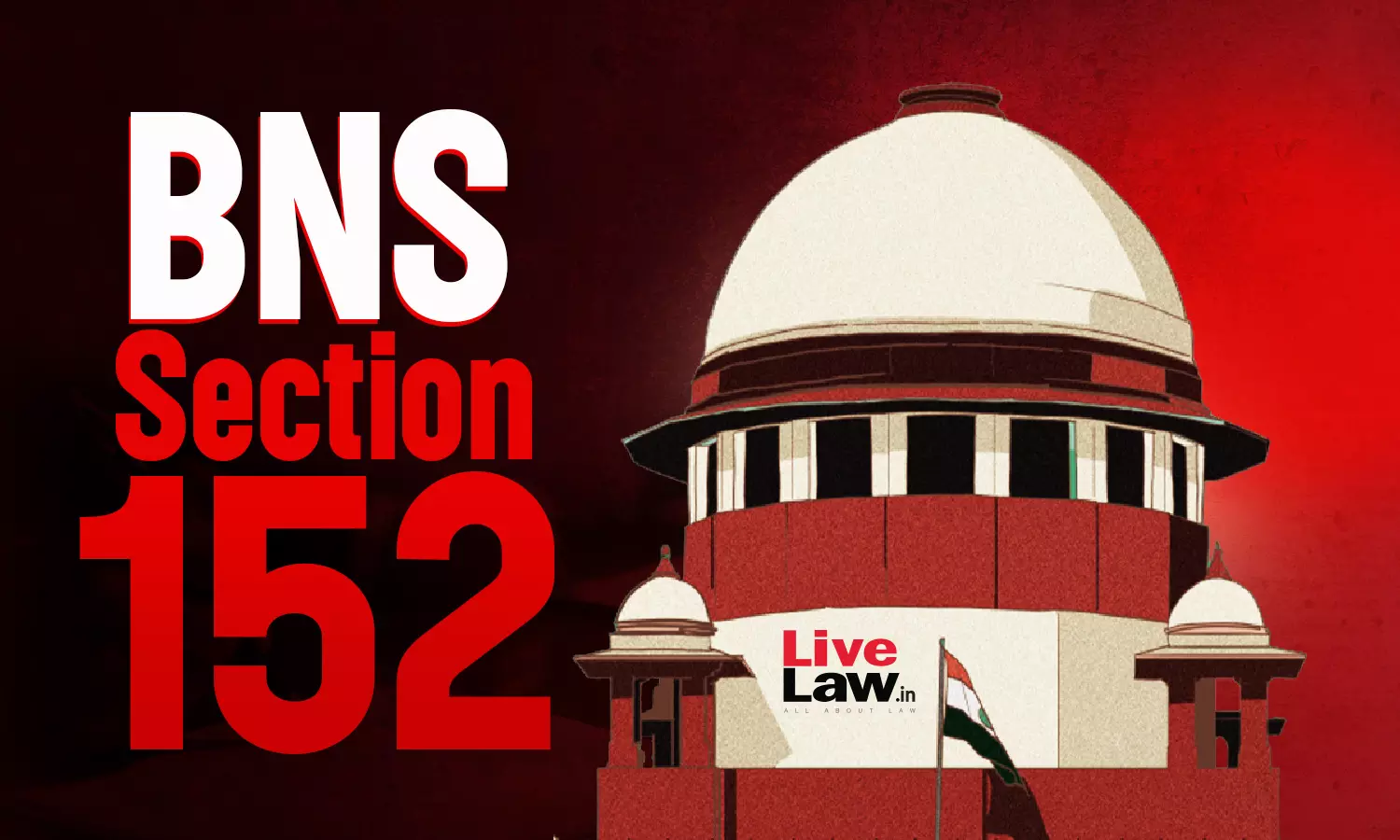Plea In Supreme Court Challenges Constitutionality Of Section 152 BNS


The Supreme Court today (August 8) agreed to consider the plea challenging the constitutional validity of S.152 BNS.
The bench of CJI BR Gavai and Justices K Vinod Chandran and NV Anjaria issued notice in the petition and tagged it with a pending matter in which the same provision is under challenge.
The writ petition is filed by SG Vombatkere (retired Major General, Indian Army), who had previously challenged the sedition law (Section 124A of the Indian Penal Code) in the case titled SG Vombatkere v. Union of India W.P.(C) No. 682/2021. In 2021, the Supreme Court had kept the operation of S.124A IPC in abeyance.
The present petition states that the S.152 BNS virtually brings back the colonial provision on sedition law and contains vague language which may leave room for arbitrary discretion.
“In effect, reintroduces the colonial sedition law previously codified as Section 124A of the Indian Penal Code, 1860, under a new nomenclature. Though the language is altered, its substantive content—criminalising vague and broad categories of speech and expression such as “subversive activity,” “encouragement of separatist feelings,” and acts “endangering unity or integrity of India”—remains the same or is even more expansive.”
S. 152 BNS states :
“Whoever, purposely or knowingly, by words, either spoken or written, or by signs, or by visible representation, or by electronic communication or by use of financial mean, or otherwise, excites or attempts to excite, secession or armed rebellion or subversive activities, or encourages feelings of separatist activities or endangers sovereignty or unity and integrity of India; or indulges in or commits any such act shall be punished with imprisonment for life or with imprisonment which may extend to seven years and shall also be liable to fine.”
The Plea states that the provision is violative of Articles 21, 14 and 19(2), considering the ‘sweeping language’ which fails the test of constitutional validity, ” due to vagueness, overbreadth, chilling effect, disproportionate punishment, and absence of proximate nexus to public disorder.”
The relief sought is as follows :
a) Issue a writ of mandamus or any other appropriate writ, order, or direction declaring Section 152 of the Bharatiya Nyaya Sanhita, 2023 as void and inoperative for being ultra vires Article 19(1)(a) of the Constitution of India, read with Articles 14 and 21 thereof;
b) Issue a writ of mandamus or any other appropriate writ, order, or direction declaring that all subsisting criminal proceedings before any court, to the extent that such proceedings relate to or arise from a charge under Section 152 of the Bharatiya Nyaya Sanhita, 2023, stand closed to such extent;
c) Issue a writ of mandamus or any other appropriate writ, order, or direction declaring that all complaints, reports or FIRs under Section 154(1) of the Code of Criminal Procedure, 1973, which in any way allege commission of an offence under Section 152 of the Bharatiya Nyaya Sanhita, 2023, stand quashed to such extent;
d) Issue a writ of mandamus or any other appropriate writ, order, or direction restraining all law enforcement authorities, including state and central police agencies, from taking any coercive step in furtherance of any investigation or 26 prosecution concerning alleged offences under Section 152 of the Bharatiya Nyaya Sanhita, 2023
Counsels for Petitioner : P.B Suresh, Sr. Adv, Prasanna S AoR, Deeksha Gupta Adv
Case Details : S.G. VOMBATKERE Versus UNION OF INDIA W.P.(C) No. 720/2025

